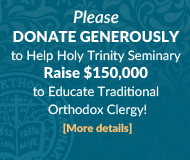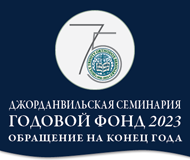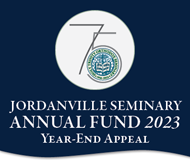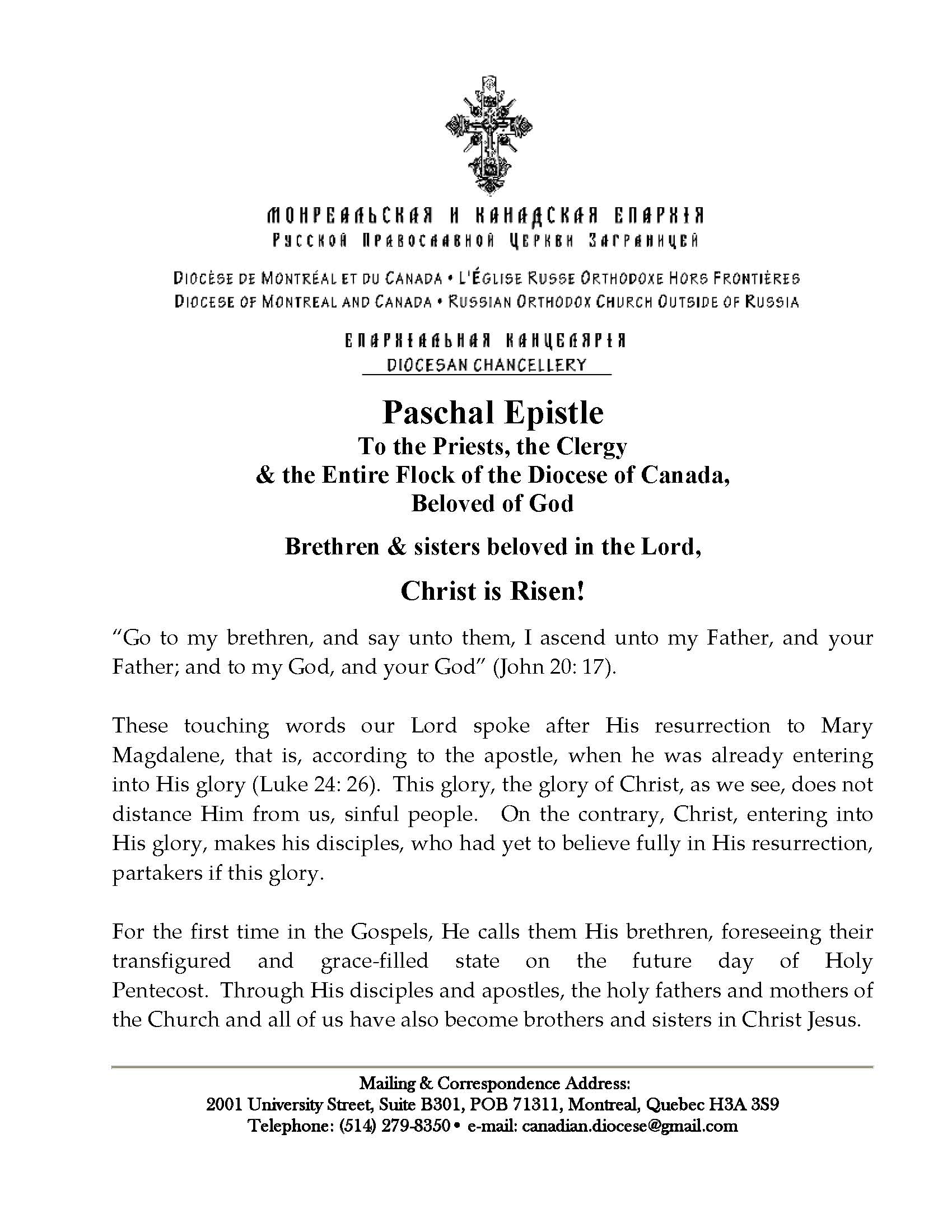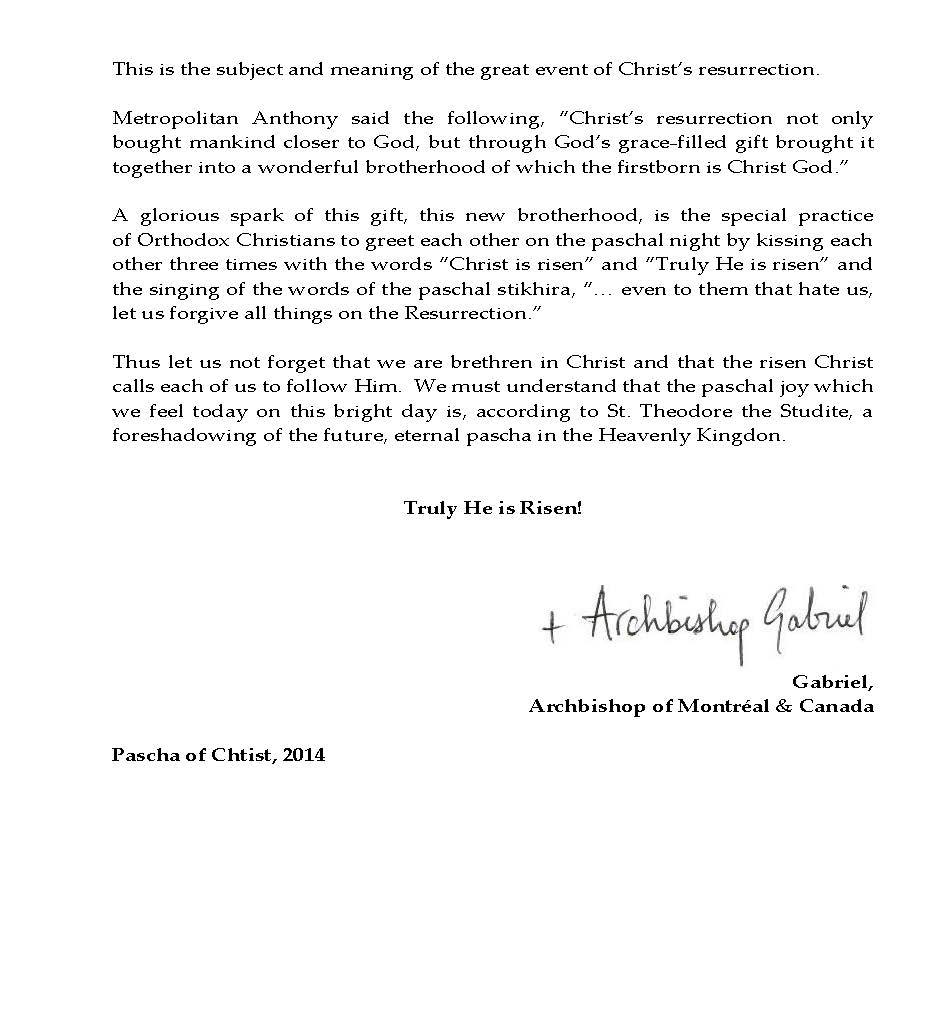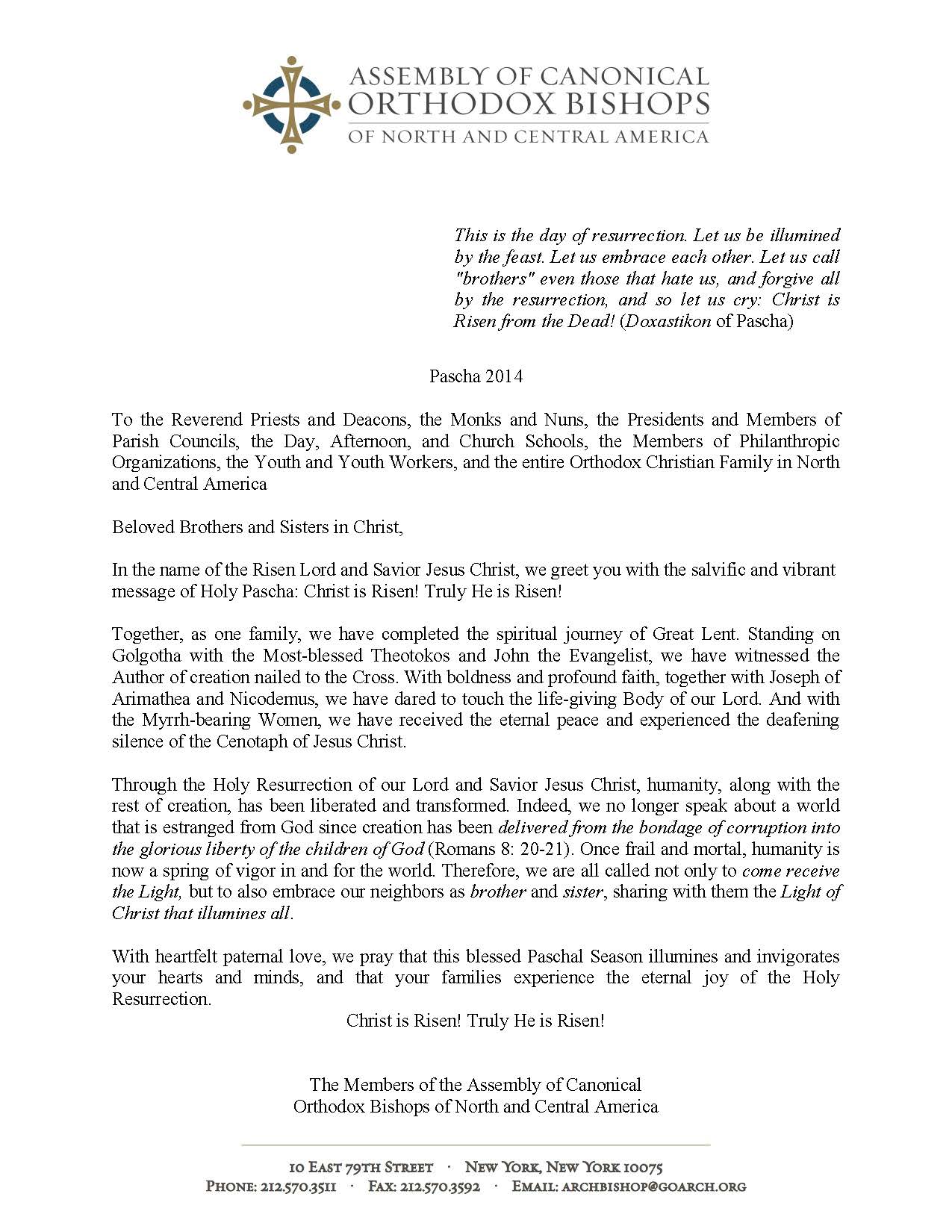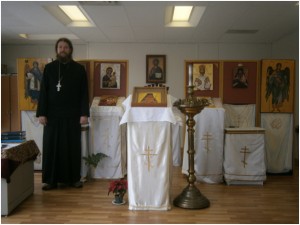News
-
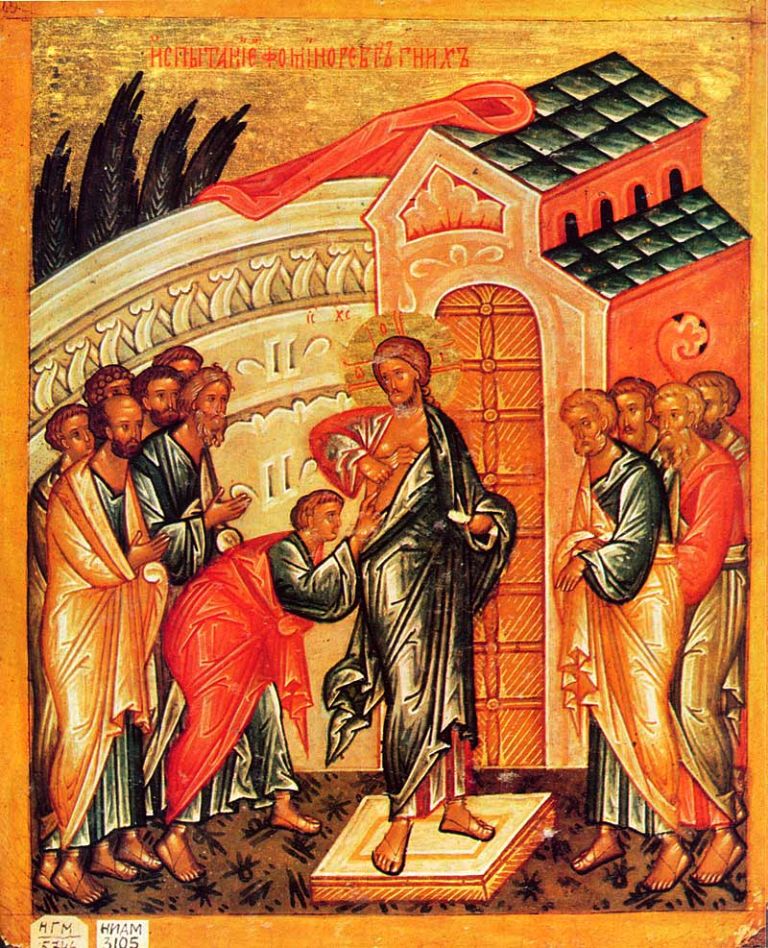
St. Thomas’ Sunday
26 April 2014
Christ is Risen!!!
The first Sunday after Pascha has arrived, and the Church celebrates its – Pascha’s – first commemoration this year. The eighth day of Pascha has arrived, and the Church already celebrates it – Pascha – again. Unlike the other feasts, which are celebrated only once a year, Pascha is repeated both yearly and weekly. That is exactly why in many Orthodox countries the first day of the week is inseparably connected to Pascha: in Russia it is called resurrection day, in Greece, the day of the Lord.
How great should the meaning of the resurrection of the Lord be for us if the Holy Church celebrates it every week? Obviously, we often forget the meaning of this great Feast since we pass through year after year, from Pascha to Pascha, without stopping in order to partake of the grace of the resurrection.
It is interesting to note that all the Sundays in the year make up approximately one seventh of all its days. Thus, at least partially, one seventh of the year is dedicated to the resurrection of the Lord, and if we consciously open our hearts and souls to God only on the feast of Pascha, then we receive only one fiftieth part of the gift of the Lord.
No one in his right mind will say: “Having eaten on Pascha, I will not eat until the next feast.” Each one of us eats daily for the sustenance of bodily strength. Why do we then starve our souls with spiritual hunger?
In our days, when this world mortifies our souls by the forgetfulness of God, by driving out the memory of Him by the multitude of affairs and concerns, may every Day of the Lord – Sunday, the resurrection day – be the day of our spiritual arising with Him. St. John Chrysostom says: “Christ is risen, and there are none dead in the graves…” Let not our hearts remain as sealed tombs on the days of the commemoration of the resurrection of Christ! Amen.
Priest Viatcheslav Davidenko
-
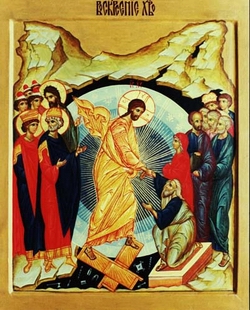
-
-
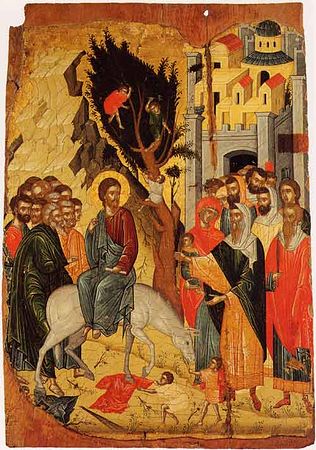
Today the grace of the Holy Spirit has brought us together…
13 April 2014
These words of the stichiron from the service of the feast of the Entry of the Lord into Jerusalem are very important to us. At a quick glance, they contain simply a narrative meaning, but after a prayerful consideration, one can see in them a profound spiritual meaning.
In honor of the feast, we bless pussy willows and palms and, at the end of the service, take them with us for the blessing and sanctification of our homes. But can we apply the words of the stichiron to ourselves based solely on that?
When the Lord entered Jerusalem, He was met by a multitude of people. Many cried: “Blessed is He Who cometh in the name of the Lord! Hosanna in the highest!” But, alas, after a few days the same people shouted: “Take Him, crucify Him!” That makes it obvious that it was not the grace of the Holy Spirit that gathered many that day. More likely, they were gathered by their personal interests, political or economical, interests, which were not satisfied with the coming of the Lord.
Wherefore, we too must ask ourselves: “what is motivating us, bringing us to church?” Is it our love of honor, or desire to be known as – not at all to be – pious? Or is it a hope of satisfaction of selfish desires, when the Church is only a firing range for the achieving of selfish goals, be they financial, political, or psychological?
God grant that for every one of us the reason will be the same: the salvation of the soul. For if we came to the Church for salvation, then truly “…the grace of the Holy Spirit has brought us together!”
Priest Viatcheslav Davidenko
-

Behold the handmaid of the Lord…
7 April 2014
“…be it unto me according to thy word…”
These words of the Most Holy Theotokos should be precious and close to the heart of every orthodox Christian. The Most Holy Theotokos said them on the day of the Annunciation, when Holy Archangel Gabriel addressed Her with the news of the incarnation of the Son of God in Her womb. The meaning of these words is simple enough, however, it is impossible to overstate their significance.
In essence, She, who was about to become the Mother of God, expressed her supreme humility and consent to her extremely difficult vocation by these words. Perhaps, some would be surprised, but Her consent to participate in the economy of our salvation was essential. News from the Archangel about the incarnation of the Son of God within Her womb should have caused many questions and possibly even doubts on Her part, yet She, showing self-control worthy of imitation, asks only one thing: how can She, not knowing Her husband, conceive and bear a Son? Learning, in response, about the decent of the Holy Spirit upon Her and about Her being overshadowed by the power of the Most High, She humbly bows before the will of God and gives Her consent.
This consent is necessary because God never violates the freedom He gave men. God doesn’t save anyone against his will. Today, the Church celebrates the coming of God the Word into the world and glorifies the Mother of God, Who became a temple not made with hands by submitting Her will to the will of the One Who sent the Archangel to visit Her.
Thus, the Most Holy Theotokos becomes the very first Christian because She is the first to know about the coming of the Son of God into the world and because She received Him not only into Her heart, but also into Her womb. She is the first to believe in Him and is His first servant in His earthly life.
Let the great humility of the Mother of God that exalted Her to such heights be an example for all of us. How often do we complain that God doesn’t help us, or doesn’t answer our prayers, yet we do not think whether our plans and desires align with the Divine providence for our salvation? How often are we dismayed and are faint of spirit when the Lord doesn’t come to our aid in obvious need, yet we do not realize that of our own will we do not allow Him to help us? Our stiff-necked wilfulness, our pride, our attachment to sin, our remembrance of wrongs, our greed, and all our other passions, all of it doesn’t allow us to follow the example of the Theotokos and to say: “Here I am, O Lord, I am Thy servant, be it done unto me according to Thy word!”
The Lord is always near and by all means desires our salvation. His Most Pure Mother also always prays for us. Let us also pray that God would give us the strength at all times and in all things to seek first the Kingdom of God and His righteousness. Let us follow the example of the Most Holy Theotokos and at all times and in all things let us seek God’s holy will. We know that then the Lord will always be with us even as He descended into the womb of His Most Pure Mother. Amen.
Priest Viatcheslav Davidenko
-
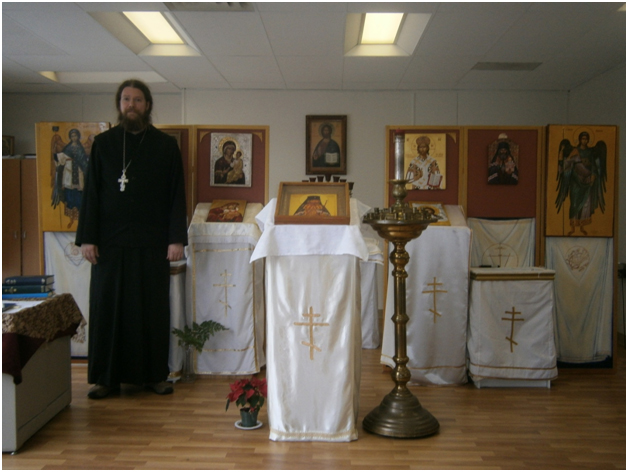
Report on the progress and status of the St John the Wonderworker Mission in Nanaimo BC
7 April 2014
The city of Nanaimo is located in the center of Vancouver Island, the population is a little under 100 thousand and it is the only other city on Vancouver Island, other than Victoria. Nanaimo is located 90 minutes north of Victoria and there is a ferry connecting Nanaimo with Vancouver on the mainland.
I began trying to serve liturgy in the city of Nanaimo around Theophany last year. The first service held was the Great Blessing of the waters at Long Lake; this is a prominent lake in the center of the city. Following this I attempted to secure a location to serve liturgy. Renting temporary spaces on a Sunday proved to be expensive, complicated and in many cases the spaces were highly undesirable and impractical.
After an extensive and exhaustive search I secured a space in a professional building beside city hall. The size and dimensions have been quite adequate for us for most of the year – even on Nativity and our Feastday the space was sufficient. It may be a bit small for Pascha this year.
We have a large sign at the entrance of the building and a 3 meter banner on our balcony which is visible from the commercial streets nearby, as we are located on a hill. I also developed a well-designed website for the parish and enhanced our online presence where possible – this has proved to be profitable as a number of people have come to the church after doing a web search.
We have been serving liturgy weekly since Palm Sunday last year (April 28th), and we have celebrated all of the major feastdays, including St Nicholas, St Herman, App Peter & Paul, etc. Vigil is served on a more irregular basis. While we struggled with the choir for the first 6 months, we now have a number of people who can do an adequate job, even when my matushka is not there. Our services are done in English and our people come from a variety of ethnic backgrounds.
When the Kursk Icon came, we had more than 40 people present for the Moleben and Akathist, and there was a large newspaper article in the newspaper about the event which brought many new people in.
People attending the parish come from Nanaimo, but also from the surrounding regions – for example one of our regular families drives 90 minutes each week. Our parish is mixed ethnically, we have primarily had Converts, Greeks, Romanians, and some Serbians. The Russians that we have had coming are isolated, or have only moved to the community recently.
On Theophany we again did the blessing of the waters at Long Lake, and had approximately 25 people present.Priest Philosoph Uhlman
